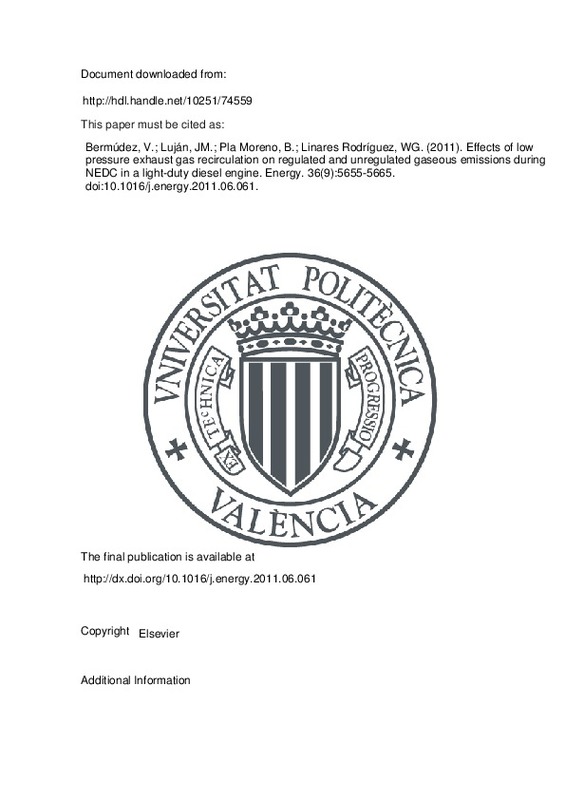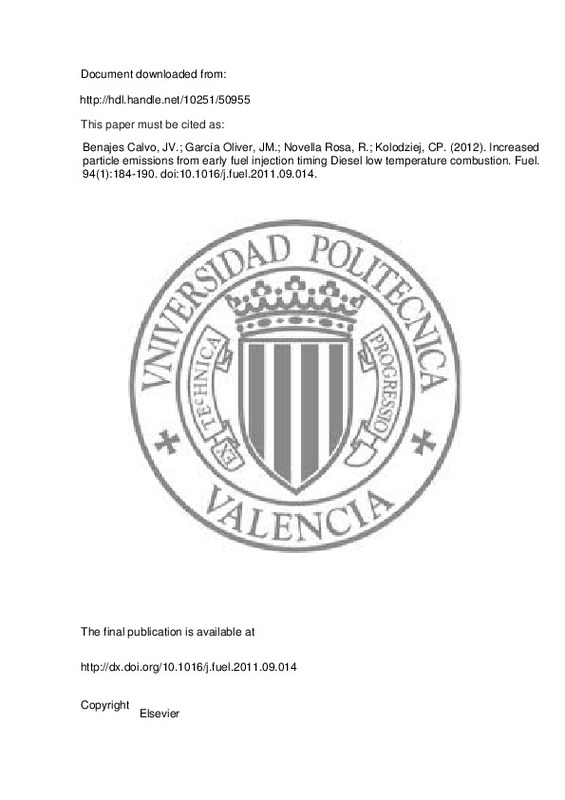JavaScript is disabled for your browser. Some features of this site may not work without it.
Buscar en RiuNet
Listar
Mi cuenta
Estadísticas
Ayuda RiuNet
Admin. UPV
Suitability analysis of advanced diesel combustion concepts for emissions and noise control
Mostrar el registro sencillo del ítem
Ficheros en el ítem
| dc.contributor.author | Torregrosa, A. J.
|
es_ES |
| dc.contributor.author | Broatch, A.
|
es_ES |
| dc.contributor.author | Novella Rosa, Ricardo
|
es_ES |
| dc.contributor.author | Mónico Muñoz, Luisa Fernanda
|
es_ES |
| dc.date.accessioned | 2016-01-27T08:32:24Z | |
| dc.date.available | 2016-01-27T08:32:24Z | |
| dc.date.issued | 2011-02 | |
| dc.identifier.issn | 0360-5442 | |
| dc.identifier.uri | http://hdl.handle.net/10251/60218 | |
| dc.description.abstract | [EN] During the last years, the preservation of the atmospheric environment has played an increasingly important role in society. The Diesel engine can be considered an environmentally friendly engine because of its low consumption and the subsequent carbon dioxide (CO2) emissions reduction. However, in the near future it will face strong restrictive emission standards, which demand that the current nitrogen oxides (NOx) and soot emissions are halved. To comply with these restrictions new combustion concepts are emerging, such as PCCI (premixed charge compression ignition), in which the fuel burns in premixed conditions. Combustion noise is thus deteriorated and consequently end-users could be reluctant to drive vehicles powered with Diesel engines and their potential for environment preservation could be missed. In this paper, Diesel combustion is addressed through the analysis of performance, emissions and combustion noise in order to evaluate the suitability of PCCI engines for automotive applications. The results show that PCCI combustion offers great possibilities to fulfill future emission restrictions, but the engine noise is strongly deteriorated. The great sensitivity of users to this factor requires vehicle manufacturers to focus their efforts on the optimization of passive solutions for implementing the PCCI concept in passenger car and light-duty engines, even with the subsequent increase in the cost of vehicle. This aspect is less restrictive in heavy-duty engines, since the great benefits in emissions reduction compensate the deterioration of engine noise. © 2010 Elsevier Ltd. | es_ES |
| dc.description.sponsorship | This work has been partially supported by Ministerio de Educacion y Ciencia through grant No. TRA2006-13782. L.F. Monico holds the grant 2009/003 from Santiago Grisolia Program of Generalitat Valenciana. | en_EN |
| dc.language | Inglés | es_ES |
| dc.publisher | Elsevier | es_ES |
| dc.relation.ispartof | Energy | es_ES |
| dc.rights | Reserva de todos los derechos | es_ES |
| dc.subject | Combustion noise | es_ES |
| dc.subject | Diesel engines | es_ES |
| dc.subject | Emissions | es_ES |
| dc.subject | Noise quality | es_ES |
| dc.subject | PCCI combustion | es_ES |
| dc.subject | Atmospheric environment | es_ES |
| dc.subject | Automotive applications | es_ES |
| dc.subject | Diesel combustion | es_ES |
| dc.subject | Emission standard | es_ES |
| dc.subject | Emissions and combustion | es_ES |
| dc.subject | Emissions reduction | es_ES |
| dc.subject | End-users | es_ES |
| dc.subject | Engine noise | es_ES |
| dc.subject | Environment preservation | es_ES |
| dc.subject | Environmentally-friendly | es_ES |
| dc.subject | Heavy duty engines | es_ES |
| dc.subject | Light-duty | es_ES |
| dc.subject | Low consumption | es_ES |
| dc.subject | Noise control | es_ES |
| dc.subject | Passive solutions | es_ES |
| dc.subject | Premixed | es_ES |
| dc.subject | Premixed charge compression ignition | es_ES |
| dc.subject | Soot emissions | es_ES |
| dc.subject | Suitability analysis | es_ES |
| dc.subject | Vehicle manufacturers | es_ES |
| dc.subject | Automobile manufacture | es_ES |
| dc.subject | Automobile parts and equipment | es_ES |
| dc.subject | Carbon dioxide | es_ES |
| dc.subject | Emission control | es_ES |
| dc.subject | Engines | es_ES |
| dc.subject | Ignition | es_ES |
| dc.subject | Nitric oxide | es_ES |
| dc.subject | Nitrogen oxides | es_ES |
| dc.subject | Vehicles | es_ES |
| dc.subject | Carbon emission | es_ES |
| dc.subject | Combustion | es_ES |
| dc.subject | Compliance | es_ES |
| dc.subject | Consumption behavior | es_ES |
| dc.subject | Diesel | es_ES |
| dc.subject | Diesel engine | es_ES |
| dc.subject | Energy use | es_ES |
| dc.subject | Noise | es_ES |
| dc.subject | Performance assessment | es_ES |
| dc.subject | Sensitivity analysis | es_ES |
| dc.subject | Soot | es_ES |
| dc.subject.classification | MAQUINAS Y MOTORES TERMICOS | es_ES |
| dc.title | Suitability analysis of advanced diesel combustion concepts for emissions and noise control | es_ES |
| dc.type | Artículo | es_ES |
| dc.identifier.doi | 10.1016/j.energy.2010.12.032 | |
| dc.relation.projectID | info:eu-repo/grantAgreement/MEC//TRA2006-13782/ES/ESTUDIOS PARA LA REDUCCION DEL NIVEL Y LA MEJORA DE LA CALIDAD SONORA DEL RUIDO DE COMBUSTION EN MOTORES HCCI/ | es_ES |
| dc.relation.projectID | info:eu-repo/grantAgreement/Generalitat Valenciana//GV%2F2009%2F003/ES/Desarrollo de Técnicas de Procesado de Señal en Evaluación por Ultrasonidos mediante Acoplamiento por Aire para la Caracterización de Materiales Cerámicos Arqueológicos/ | |
| dc.rights.accessRights | Cerrado | es_ES |
| dc.contributor.affiliation | Universitat Politècnica de València. Departamento de Máquinas y Motores Térmicos - Departament de Màquines i Motors Tèrmics | es_ES |
| dc.description.bibliographicCitation | Torregrosa, AJ.; Broatch, A.; Novella Rosa, R.; Mónico Muñoz, LF. (2011). Suitability analysis of advanced diesel combustion concepts for emissions and noise control. Energy. 36(2):825-838. https://doi.org/10.1016/j.energy.2010.12.032 | es_ES |
| dc.description.accrualMethod | S | es_ES |
| dc.relation.publisherversion | http://dx.doi.org/10.1016/j.energy.2010.12.032 | es_ES |
| dc.description.upvformatpinicio | 825 | es_ES |
| dc.description.upvformatpfin | 838 | es_ES |
| dc.type.version | info:eu-repo/semantics/publishedVersion | es_ES |
| dc.description.volume | 36 | es_ES |
| dc.description.issue | 2 | es_ES |
| dc.relation.senia | 40854 | es_ES |
| dc.contributor.funder | Ministerio de Educación y Ciencia | |
| dc.contributor.funder | Generalitat Valenciana |






![[Cerrado]](/themes/UPV/images/candado.png)



